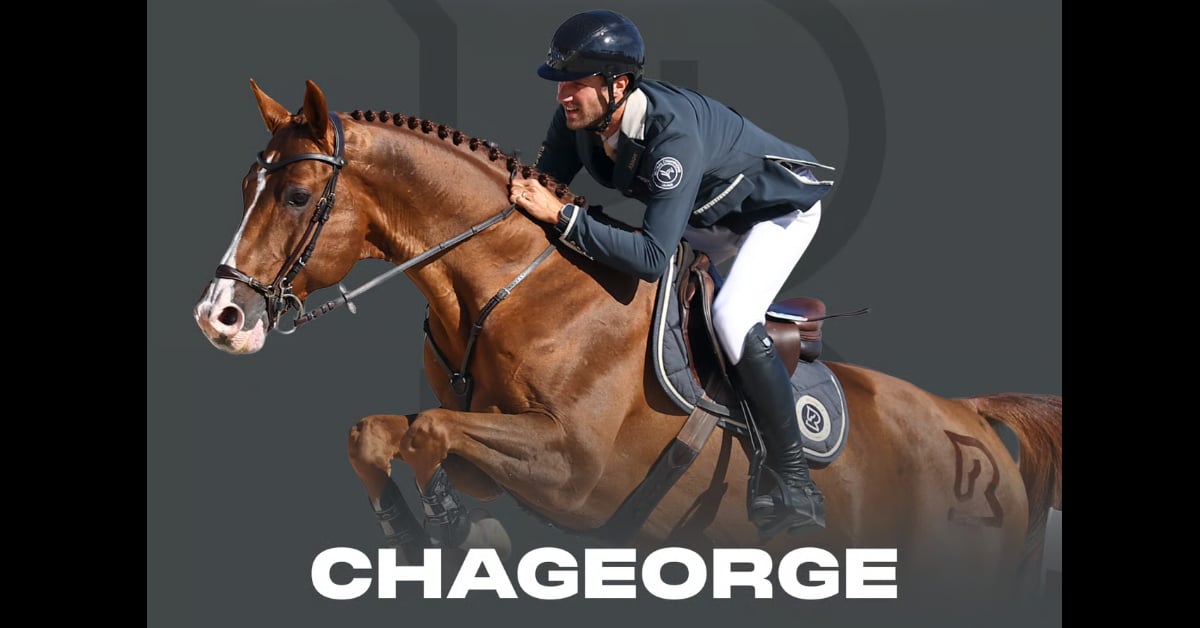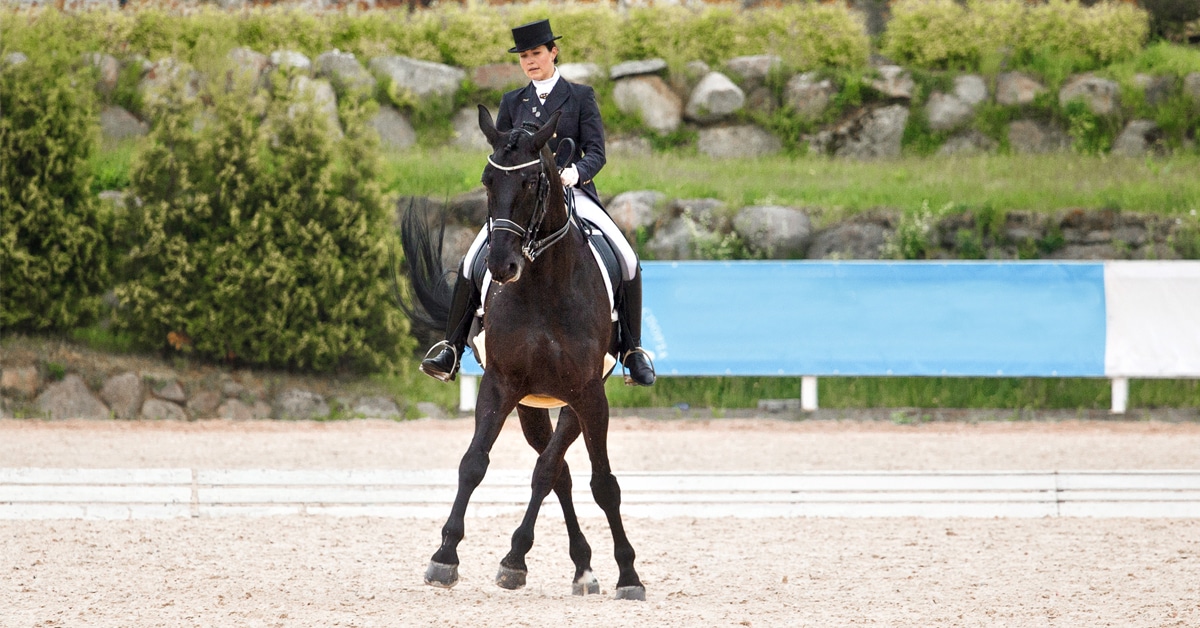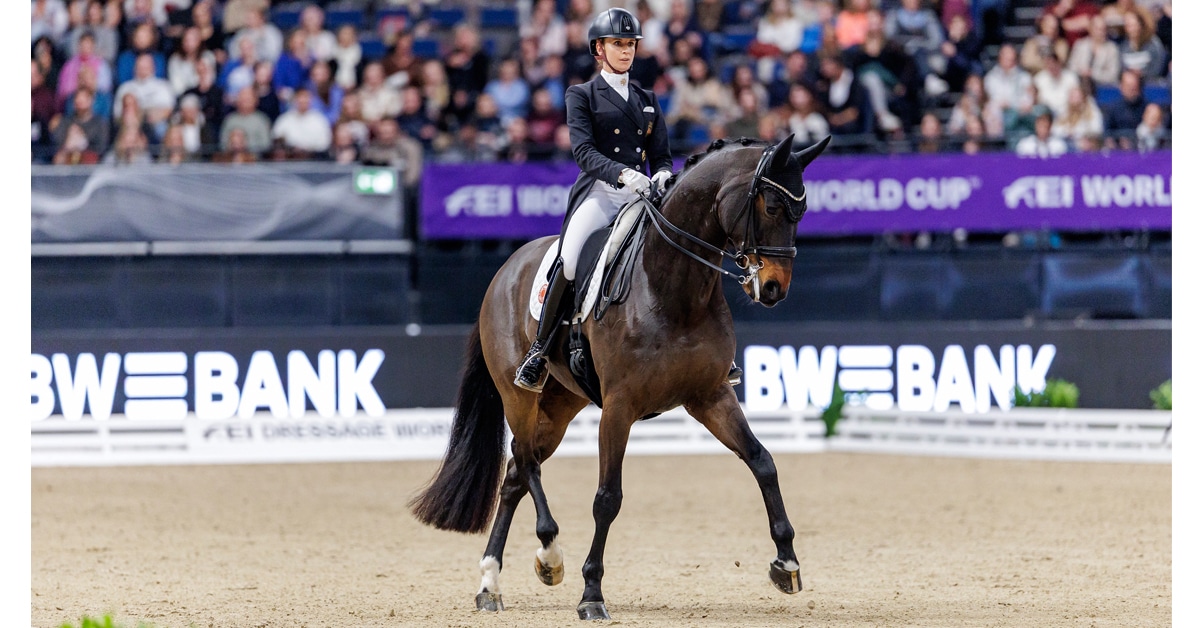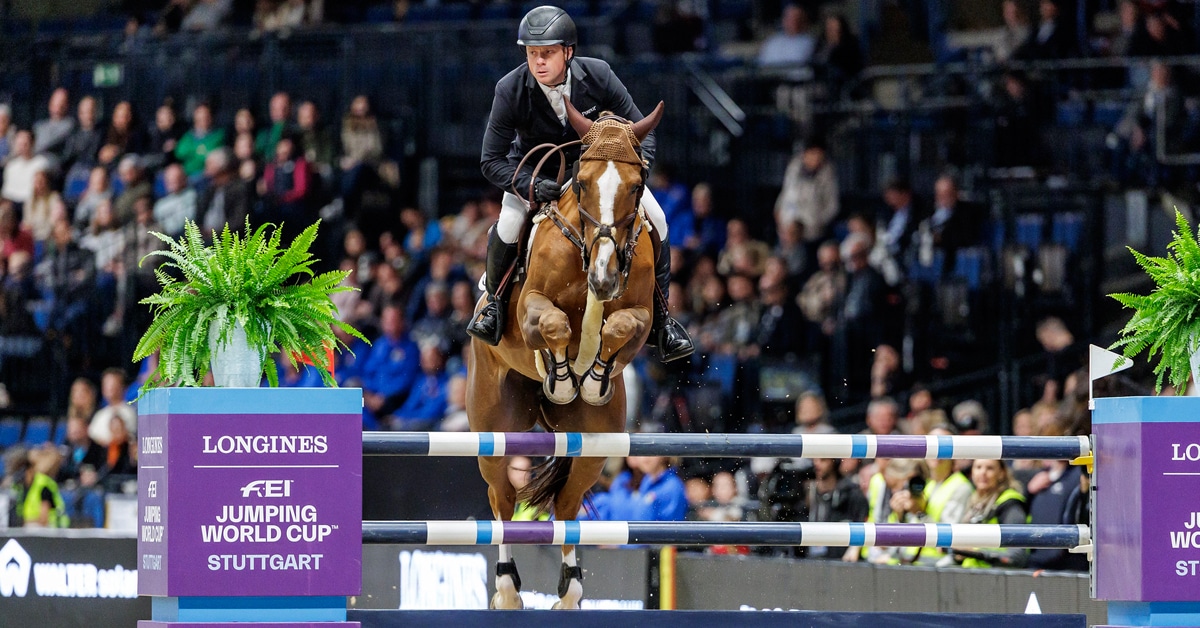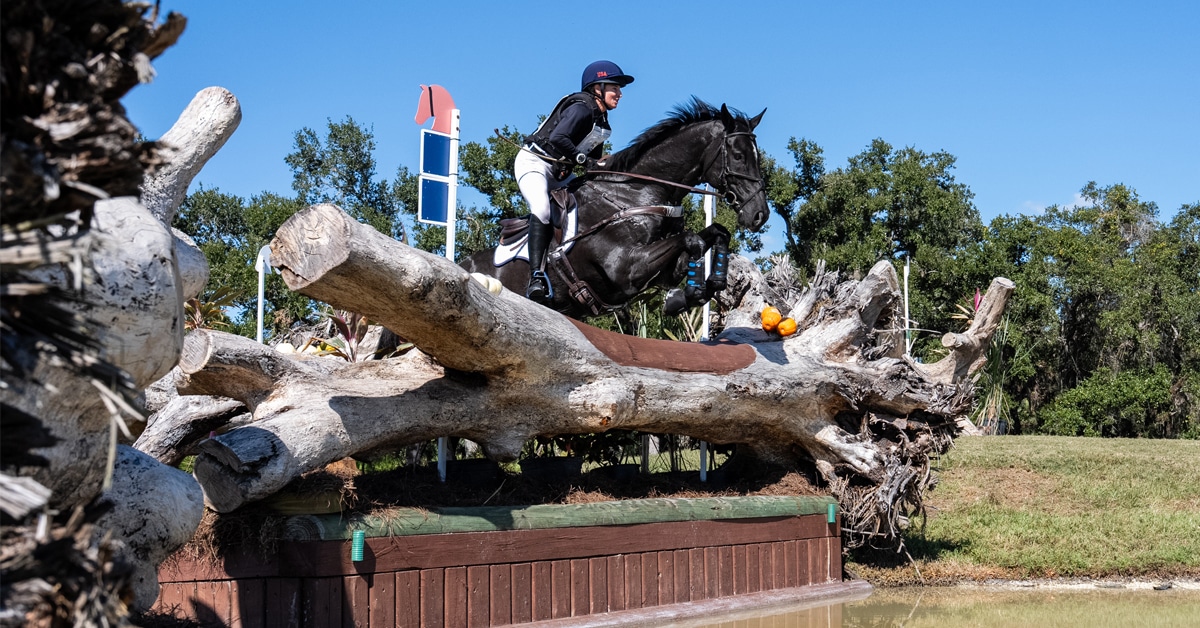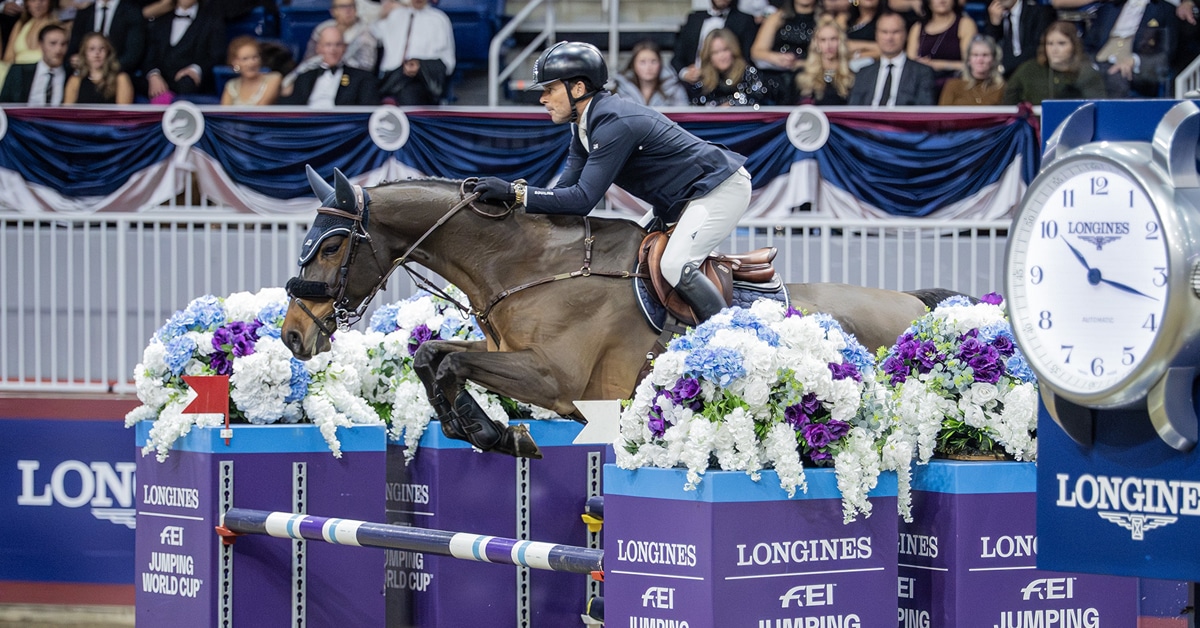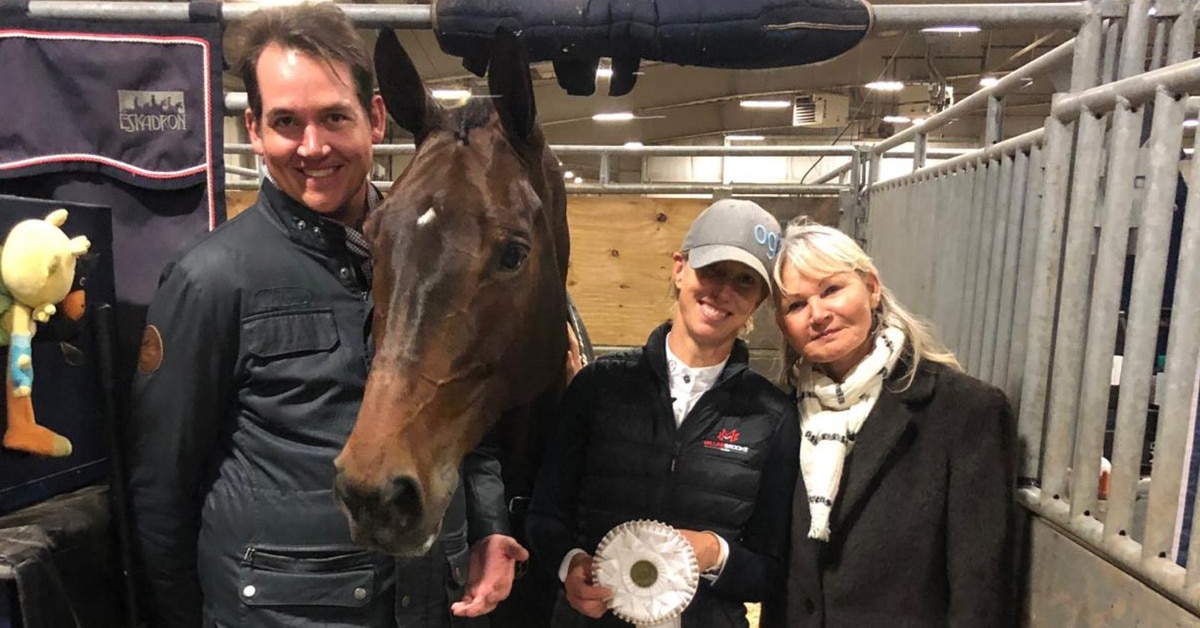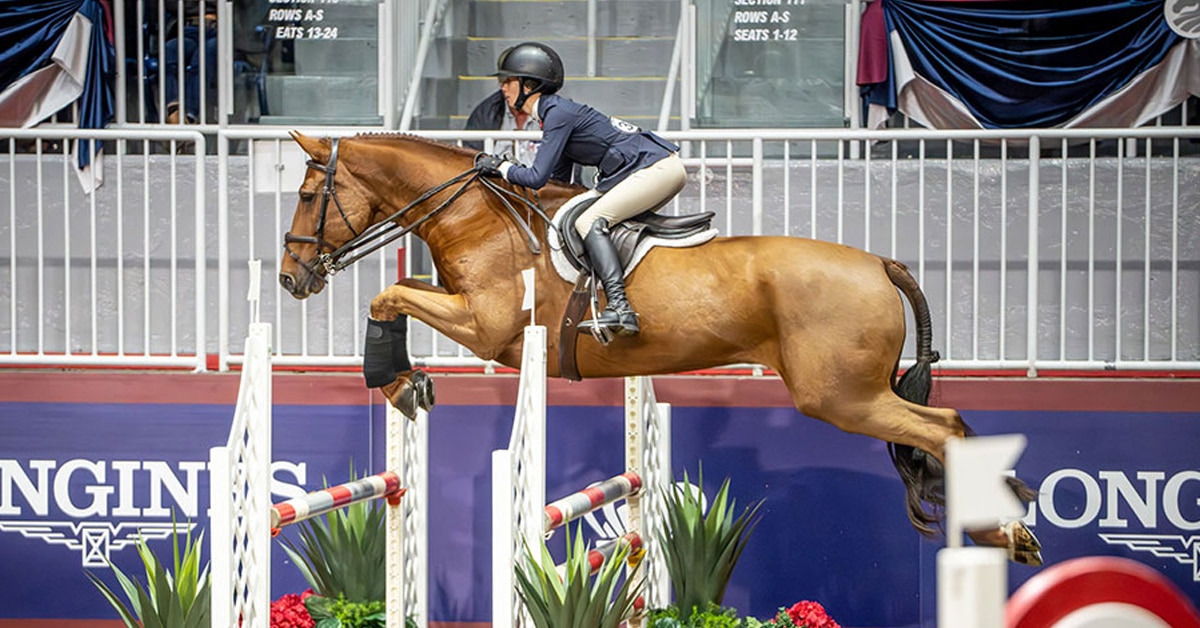Two of the riders involved in the Olympic rankings points controversy back in January have lost their appeal to the FEI Tribunal against the decision to annul their results.
The controversy was first revealed in Horsesport.com, which highlighted numerous CSI 2* shows at Villeneuve Loubet in the south of France last winter. Rankings classes were added only after the close of Definite Entries. Only the same few riders took part while winning full ranking points. The FEI said Villeneuve deliberately stayed “under the radar” so as to provide a “golden ticket” to a chosen few.
As a result, Sri Lanka’s Mathilda Karlsson gained an individual jumping place for her country at Tokyo. Meanwhile, Villeneuve Loubet proprietor’s son Andrea Herck, who rides for Romania, was one of several participants to significantly improve his Longines ranking, prior to the FEI’s introduction of a new CSI invitation system on February 4, 2020; Tribunal heard that under this new system, the higher ranked the rider, the more likely an invitation.
Karlsson and Herck appealed after the FEI retrospectively removed six competitions from three December 2019 shows and a further six competitions from three events in January 2020. This meant Karlsson’s Tokyo place went to Hong Kong.
Tribunal heard that after formal complaints from other stakeholders, including the International Jumping Riders Club and the Hong Kong equestrian federation, the FEI Equine Community Integrity Unit (ECIU) investigated, and concluded the entries had been “manipulated.”
Contrary to FEI Rules (Article 110.2.3 of the FEI General Regulations), two competitions counting for the Olympic and Longines rankings were added at each of three December 2019 events after the respective Definite Entries deadlines. The updated schedules were submitted by the French National Federation (FFE) and mistakenly approved by the FEI.
Once these results were removed, Karlsson dropped from second to seventh in the Group G Olympic Rankings, with Sri Lanka losing its Olympic individual quota slot to Hong Kong.
Additionally, the FEI established that three of the six events in January 2020 each added two classes counting for Longines rankings points after Definite Entries, again contrary to the FEI Rules. Herck’s appeal was based on the loss of Longines points following the removal of those additional competitions.
The FEI’s case, which the Tribunal agreed, was that the late addition of ranking classes totally transformed the nature of the shows by instantly tripling the ranking points available; the timing ensured the Organiser could effectively handpick riders. The impact was even greater given the planned overhaul of the CSI Invitation system and the deadline for earning Olympic points.
The ECIU said a number of interviewees told them the Organiser [Andre Herck] made it clear to national [French] riders these were “invitational shows.” Entries, all to be made after Definite entries, would be made as late entries by the Organiser personally and transmitted to the FFE. He also advised national riders these were training shows with no prize-money but with Longines ranking points. The ECIU said that an ethically unfair environment was created. National riders entered by the Organiser were all personally known to him.
The organiser said his reason for limiting rider quota [maximum 20] was financial, having previously experienced losses with bigger shows. He was concerned when he had no entries at the Definite Entries deadline, so he added ranking classes because he believed he could, hoping this would attract riders. He saw no need to do so before Definite Entries because he never expected no French riders to enter. The more remote foreign NFs invited were chosen because of previous bad experiences with more local NFs.
The ECIU also found discrepancies with payment of prize money, some details of which the organiser declined to disclose. The FEI gave examples of the Organiser apparently paying prize money to himself due his unexplained status as “lessee” of the horse; highly irregular arrangements whereby prize-money was forfeited in exchange for a future option to buy a horse; and a rider asked to forfeit prize money in return for a late entry.
The FEI said the invitation criteria was “bizarre”: as well as Sri Lanka, NFs included remote Croatia, Cyprus, Georgia, Moldova and North Macedonia, who had not previously sent riders. This could only be intended to limit potential quality and numbers of participants, boosting the other riders’ chances of earning ranking points ‒ a “golden ticket.”
Tribunal Satisfied FEI’s Mistake was Rare
In these proceedings it remained undisputed that the FEI approved the amended schedules. It remains, however, disputed whether it had the right to do so under FEI Rules and Regulations, or whether it was normal practice after Definite Entries.
Karlsson and the Sri Lankan equestrian federation asked for her results and points to be reinstated, plus a costs order against the FEI. She could not be blamed for the actions of the FEI, the FFE or the organiser and had entered the shows in the legitimate expectation the schedules were approved and valid. The only way FEI rules and regulations for schedule approval could be changed was by statute, and the FEI secretary general had no power to enact that.
Karlsson said the ECIU had apparently not concluded anything but alleged irregularities, which did not satisfy the burden of proof. If the Tribunal was of the opinion that closing date for Entries and Definitive Entries are interchangeable terms, then the FEI’s conduct over other shows in 2019 and 2018 frequently departed from the second sentence of Article 110.2.3 that “The FEI will not approve any schedules when the closing dates for Entries have already passed.”
To Karlsson, the alleged mistake of the FEI in approving the schedules did not exist, but was a structural policy.
The Appellants further argued that neither the Organiser or FFE were disciplined by the FEI; the athletes were the ones getting punished. The sanction was arbitrary and discriminatory, and the FEI should face up to its own mistakes and conduct an internal investigation.
Herck gave examples of other organisers who allegedly requested riders to buy VIP tables in return for participation, or added the possibility to earn certificates of capability only after the Definite Entries deadlines. These were “10,000 times” more important schedule changes and opened the door for manipulation of events as important as the Olympic Games or European Championships. However, a review of these events proved this was not the case. The Tribunal was satisfied this was not FEI policy, but a rare mistake.
In handing down its decision, Tribunal said FEI rules do not define “justified circumstances” and they have to be evaluated case by case. Putting the integrity of the sport into jeopardy could certainly count as justified circumstances.
While there were fair and equal conditions for the small number of athletes at the Villenueve shows themselves, this was not the case for riders who wanted to participate when extra rankings competitions were added. The “invisible athletes” were at the mercy of Organiser goodwill.
The Tribunal also clarified it does not matter who brings complaints to the FEI. In fact, the FEI should encourage the equestrian community to report any cases where they believe FEI Rules and Regulations have been violated. The fact that one complaint came from a direct competitor of Karlsson for an Olympic quota place does not change anything.
Each party was ordered to pay their own costs.
More News
